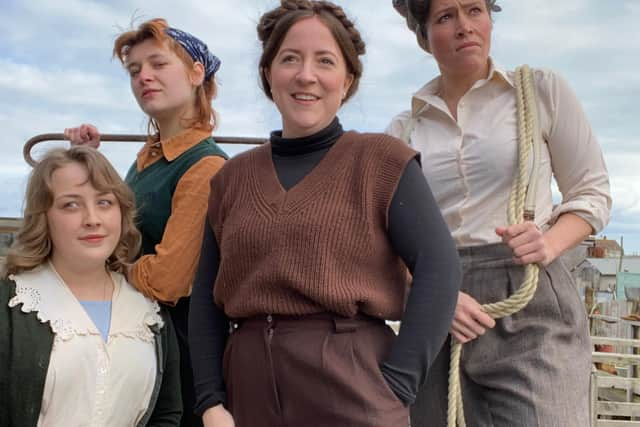Remembering wartime's so-called "Idle Women"
and live on Freeview channel 276
As Phil says: “It is a little known part of our history that the quiet canals of England received a burst of wartime effort in the early 1940s. This took the form of at least 40 women volunteers who left hearth and home, despite their inexperience, to work on the boats, specifically on the Grand Union Canals, ensuring safe passage of essential supplies between London and Birmingham in the later years of the Second World War. The work was gruelling and relentless, and the women had to quickly adapt and learn the hard ways of life on the cut, but accounts tell also of journeys rich with community, connection with nature and a chance to experience an entirely different way of life.”
And along the way, their Inland Waterways IW badges somehow brought them the nickname Idle Women.
Advertisement
Hide AdAdvertisement
Hide Ad“It is an area of history that has perhaps not been explored to the degree that it should. There are three or four memoirs and another previous play that was based on interviews with a few of the women, some years ago. Obviously there are not many of them left now, if any. I haven't seen the play but I read it and I've talked to the person who wrote it and she is coming down to see the show.”


For Phil it all began with a striking photograph of one of the IW women, Daphne March: “These women were newcomers to the ways of the waterways as part of the war effort but I was looking at this picture and it is such a powerful picture. She looks very strong. She's standing on the edge of the boat. Getting a photograph taken in 1942 would have been quite unusual. She looks very spruced up. She looks very able and she looks very muscular and she looks very striking but I saw underneath the photograph the words Idle Women, and I wondered what on earth that was all about. There are various stories about how the Idle Women nickname came about and one of them was that it was the daughter of one of the women who wrote one of the memoirs but we really don't know. But obviously it is hugely ironic because these were far from idle women. I imagined it was a term of abuse at first but I don't think it was now. And so you've just got the irony of these Idle Women who really were anything but idle.”
The creative team, brought together by Phil, were inspired by the extraordinary role these women played in exceptional circumstances: “We considered the possibilities of what might occur in this unique context. The writing process for Idle Women was entirely collaborative, with a group of actors and musicians dedicated to creating a tapestry of music and story to herald these women, based in truth, as well as exploring themes that resonate still today: purpose, connection, community, work, gender, sexuality and identity. Idle Women presents the journey of a group of four intrepid new boatwomen, weaving together challenges and triumphs, with songs which describe their resilience and their hopes,”